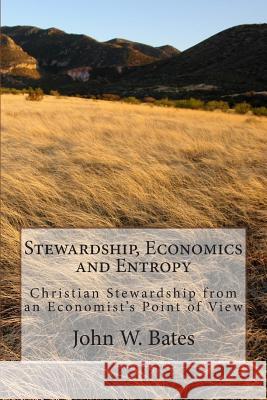Stewardship, Economics and Entropy: Christian Stewardship from an Economist's Point of View » książka
Stewardship, Economics and Entropy: Christian Stewardship from an Economist's Point of View
ISBN-13: 9781507647493 / Angielski / Miękka / 2015 / 202 str.
In Genesis 1:31a we find that God saw everything that he had made, and indeed, it was very good. In Psalms 24:1 we find The earth is the LORD's and all that is in it, the world, and those who live in it. Yet many Christians, encouraged by many theologians, seem to believe that the world is a place of evil and that only the love of God through Christ Jesus, earned by renouncing and turning away from the evil world, will allow salvation and the enjoyment of an afterlife of heavenly bliss instead of a fiery Hell. To many, evidence of this evil world is wealth, especially wealth earned through capitalism instead of seeking communal equality where all labor and share equally with no personal comforts unless they are enjoyed by everyone. Since such a belief system is not natural to most people, many are left with an unsettled view whereby they work to provide for themselves and their loved ones and at the same time have feelings of guilt for their "unchristian" attitudes. In this work the author attempts to reach back to the concept that God's creation is good and humanity's purpose is to continue God's creative work and establish God's Kingdom on earth, not in some idealized heaven, admission to which is earned by rejecting God's creation as an evil place. This attempt first offers a definition of stewardship which has nothing to do with annual fund raising campaigns. The definition of stewardship offered is for a system of behavior which seeks to maintain God's creation and all that is in it through optimizing the use of human and natural resources in order to hold off the natural destruction (entropy) which is inherent in the Creation. The nature of economic practice as human endeavor is examined and related to stewardship. Some of the fallacies of "traditional" theological economic analysis are considered, and then familiar Bible stories, principally from the Gospels, are considered from the author's market-oriented economics viewpoint contrasted with the traditional anti-wealth/anti-commerce theological mind-set.
Zawartość książki może nie spełniać oczekiwań – reklamacje nie obejmują treści, która mogła nie być redakcyjnie ani merytorycznie opracowana.











